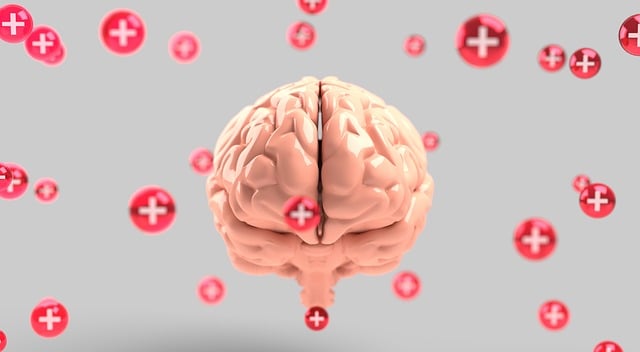Trauma significantly impacts both mind and body, leading to conditions like anxiety, depression, and flashbacks. Organizations such as Broomfield Hypnosis Therapy offer safe spaces for individuals to process traumatic memories through hypnosis, a powerful tool accessing the subconscious. This approach complements traditional therapy methods, fosters self-healing, and promotes resilience. Effective trauma support requires cultural competency among healthcare providers, tailored care, and open dialogue. Broomfield Hypnosis Therapy emphasizes trust and emotional exploration in a therapeutic environment, advocating for burnout prevention strategies among therapists. Continuous improvement through robust evaluation methods ensures program effectiveness tailored to individual needs, contributing to enhanced inner strength development within communities.
Trauma support services are crucial for fostering healing and resilience among individuals who have experienced traumatic events. This article delves into understanding trauma’s profound impact and explores the role of innovative approaches like Broomfield Hypnosis Therapy in providing effective assistance. We examine strategies for accessing and delivering support, emphasizing the creation of safe therapeutic environments. Additionally, we discuss measuring success and implementing continuous improvements to ensure optimal care.
- Understanding Trauma and Its Impact
- The Role of Broomfield Hypnosis Therapy in Support
- Accessing and Providing Effective Support Services
- Creating a Safe and Therapeutic Environment
- Measuring Success and Continuous Improvement
Understanding Trauma and Its Impact

Trauma is a profound and complex experience that can have lasting effects on an individual’s mental and physical well-being. It refers to a deeply distressing event or series of events that overwhelm a person’s ability to cope, often leading to long-term challenges such as anxiety, depression, and flashbacks. Understanding trauma is the first step towards providing effective support, especially through services like Broomfield Hypnosis Therapy. This therapeutic approach aims to help individuals process traumatic memories and emotions, offering a safe space for healing.
The impact of trauma can manifest in various ways, affecting not just the mind but also the body. Many survivors struggle with ongoing stress, difficulty concentrating, and even physical symptoms like chronic pain. Recognizing these signs is crucial, and organizations like the Stress Management Workshops Organization play a vital role by promoting strategies to manage post-traumatic stress. Additionally, Compassion Cultivation Practices have gained prominence as an effective way to foster empathy and understanding in both survivors and those supporting them, creating a more nurturing environment for healing.
The Role of Broomfield Hypnosis Therapy in Support

Broomfield Hypnosis Therapy offers a unique and effective approach to trauma support, playing a pivotal role in helping individuals navigate their healing journey. This therapeutic method utilises the power of the subconscious mind to address deep-seated traumas that often go beyond traditional talk therapy. By inducing a state of profound relaxation, hypnosis allows for direct access to these hidden memories, emotions, and beliefs. Through this process, clients can begin to reframe negative associations and replace them with positive affirmations, fostering self-healing and resilience.
In the context of mental health care, Broomfield Hypnosis Therapy complements existing practices such as Risk Management Planning for Mental Health Professionals. It encourages clients to develop a robust self-care routine (Self-Care Routine Development for Better Mental Health) by enhancing their Self-Awareness Exercises, enabling them to better manage and prevent future trauma-related issues. The therapy’s ability to delve into the unconscious mind provides a powerful tool in the mental health professional’s arsenal, offering a holistic approach to healing and recovery.
Accessing and Providing Effective Support Services

Accessing effective trauma support services is a vital step towards healing and recovery. Individuals who have experienced traumatic events often require specialized care, which can be found through various channels. One such resource is Broomfield Hypnosis Therapy, which offers a unique approach to addressing deep-seated issues. This therapeutic method helps clients explore their emotions and memories in a safe environment, promoting mental wellness and providing tools for long-term coping strategies.
Ensuring that support services are accessible requires consideration of cultural competency among healthcare providers. Training in this area allows professionals to offer tailored care, respecting diverse backgrounds and beliefs. Effective communication strategies are also key; understanding the needs of trauma survivors and creating a non-judgmental space encourages individuals to seek help and engage with treatment plans. By combining specialized therapy, such as hypnosis, with culturally sensitive practices and open dialogue, communities can better support those affected by trauma.
Creating a Safe and Therapeutic Environment

Creating a safe and therapeutic environment is paramount when providing trauma support services. Broomfield Hypnosis Therapy, for instance, prioritizes establishing a nurturing setting that fosters trust and encourages clients to explore their emotions openly. Through techniques like hypnosis, therapists guide individuals into a deep state of relaxation, allowing them to confront and process traumatic memories in a controlled manner. This approach not only enhances emotional well-being promotion techniques but also facilitates a deeper understanding of the client’s experiences.
Moreover, a supportive environment plays a crucial role in mitigating burnout prevention strategies for healthcare providers who work with trauma survivors. Mental Health Policy Analysis and Advocacy highlights the importance of creating systems that support therapists’ own mental health, ensuring they can effectively assist their clients without compromising their well-being. By cultivating a safe space, Broomfield Hypnosis Therapy contributes to this advocacy, enabling practitioners to navigate complex emotional landscapes with sensitivity and professionalism.
Measuring Success and Continuous Improvement

Measuring success and continuous improvement are vital components of any trauma support service, such as Broomfield Hypnosis Therapy. By implementing robust evaluation methods, organizations can assess the effectiveness of their programs and ensure they meet the unique needs of individuals seeking healing from trauma. This involves collecting qualitative and quantitative data through client feedback, outcome measures, and regular reviews. Such assessments allow for a comprehensive understanding of program impact, identifying areas of strength and weakness to foster continuous enhancement.
For instance, tracking progress in emotional regulation, a key focus area, can be accomplished through before-and-after comparisons and participant surveys. Additionally, the Community Outreach Program Implementation can be assessed by measuring client engagement and satisfaction levels. These insights not only guide improvements but also contribute to building a stronger connection with the community, fostering inner strength development among participants.
Trauma support services play a pivotal role in healing and resilience. By understanding trauma’s profound impact, we can harness effective tools like Broomfield Hypnosis Therapy to create safe, therapeutic environments. Accessing and providing these services requires a multifaceted approach, from ensuring trained professionals to continuously measuring success. Ultimately, through dedicated efforts, we can foster healing and empower individuals to overcome their traumatic experiences, promoting holistic well-being in our communities.














